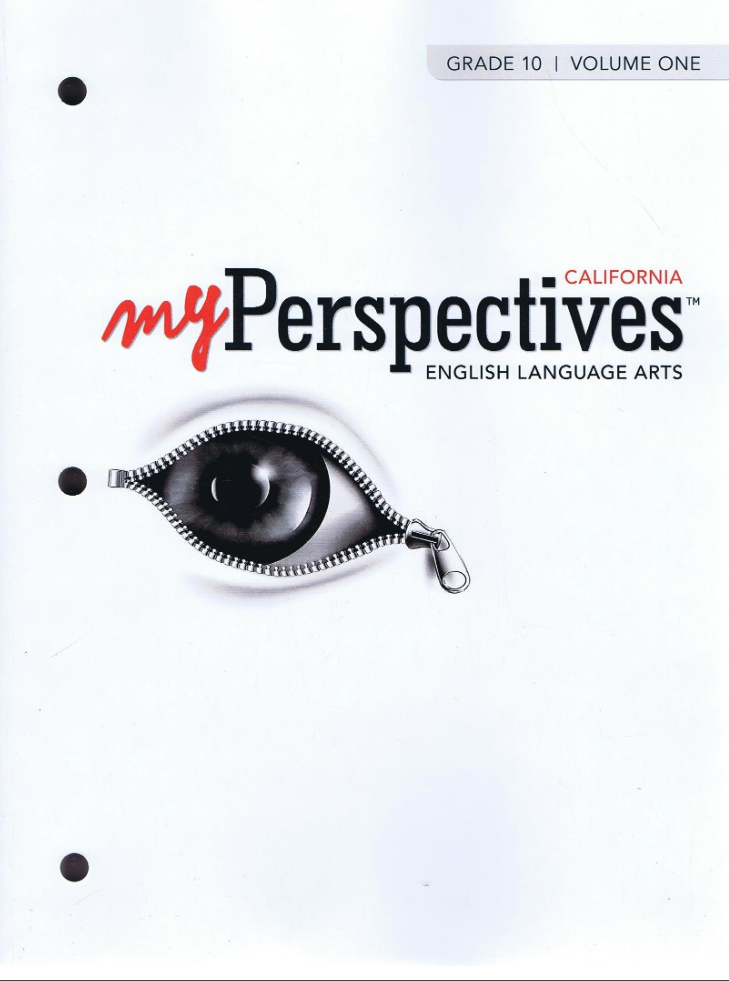
myPerspectives: English Language Arts Volume 1, California Grade 10
1st Edition
ISBN: 9780133339598
Textbook solutions
All Solutions
Page 229: Analyze Craft and Structure
Exercise 1
Result
1 of 1
Robbins supports her claim by naming celebrities that are relevant today, who were bullied as children and became successful in adulthood.
Exercise 2
Step 1
1 of 2
See sample answer below.
Result
2 of 2
She points out that people good at conforming are less likely to think outside the box, and therefore are less likely to innovate. In addition, she mentions that psychologists theorize the exclusionary behavior staunch conformists learn in high school can translate to racism, anti-Semitism, and other forms of bigotry later in life.
Exercise 3
Step 1
1 of 5
Claim
Evidence
Credibility
Relevance
Step 2
2 of 5
The things that make kids “different” in high school may help them succeed in adult life.
Taylor Swift scorned for liking country music, Tim Gunn mocked for liking to make things, J.K. Rowling bullied in childhood.
Medium. These things did actually happen, but these are only three examples. It’s anecdotal evidence.
Robins argues that these celebrities are examples of excluded kids turning into highly successful adults…but there may have been other factors in their lives that cancelled out their ‘quirky’ traits. For all we know, there may be way more examples of excluded kids growing into excluded adults.
Step 3
3 of 5
In the adult world, being “out” is in.
Geeky merchandise is widely sold, “nerdcore” hip hop is growing in popularity, and Comic Con attracts massive crowds.
Medium. These things, again, are true, but just because lots of people are purchasing nerdy merchandise and attending Comic Con doesn’t mean they’re not getting judged for it.
Being “out” isn’t necessarily “in” for adults more than kids…it’s just easier for adults to hide their hobbies. Moreover, nerd merchandise is extremely profitable, so the extensive marketing for these items may be attracting people who aren’t even that interested in comics. It might be more accepted to purchase geek related items than it is to actually live the life of a geek.
Step 4
4 of 5
High status cliques may teach the exclusionary behavior that is involved with racism, anti Semitism, homophobia, misogyny, etc.
“Psychologists point out…”
Low. No statistics or specific studies are mentioned.
While it may logically follow that exclusionary clique behavior leads to bigotry later in life, this claim is poorly founded because there is no evidence given to back it up. Moreover, the author does not consider the possibility that the exclusionary behavior associated with teenage and childhood cliques might already be racist, anti Semetic, homophobic, misogynist, etc.
Result
5 of 5
See chart for information regarding Revenge of the Geeks.
Exercise 4
Step 1
1 of 2
See sample answer below.
Result
2 of 2
Robbins’ argument leaves much to be desired. Many of the examples used in the text are never connected to studies, instead pushed aside with vague statements like “psychologists point out.” The lack of facts cited in the paper leads me to believe it is more of a philosophical argument than anything else, which would be fine, if it made logical sense. Even the anecdotal examples are analyzed in a way that ignores critical counter arguments. Robbins cites Taylor Swift, Tim Gunn, and J.K. Rowling as examples of adults that were bullied in school for the same things that made them successful as adults, but never in the text is it considered that other factors might have caused them to be successful in the first place. Was it Taylor Swift’s love of country music that got her famous, or did she have a relatively wealthy family that was able to make sure she had the best odds of success possible? These people’s divergent talents seem only to be one factor in their success, not the reason for it, which renders Robbins’ argument that ostracized kids are sure to grow up into successful adults pretty poorly.
unlock

